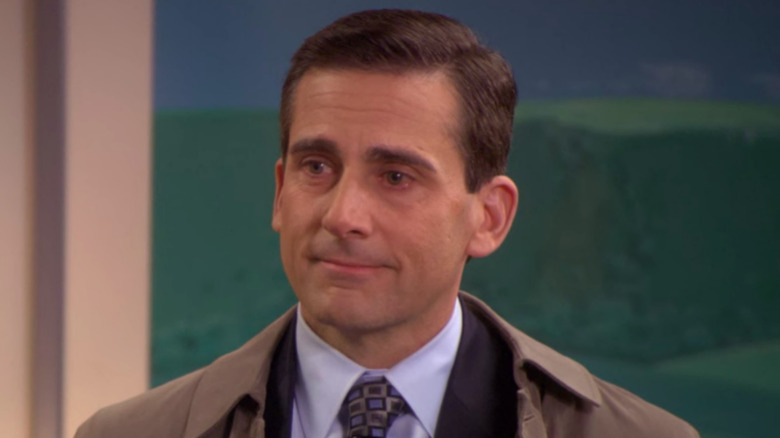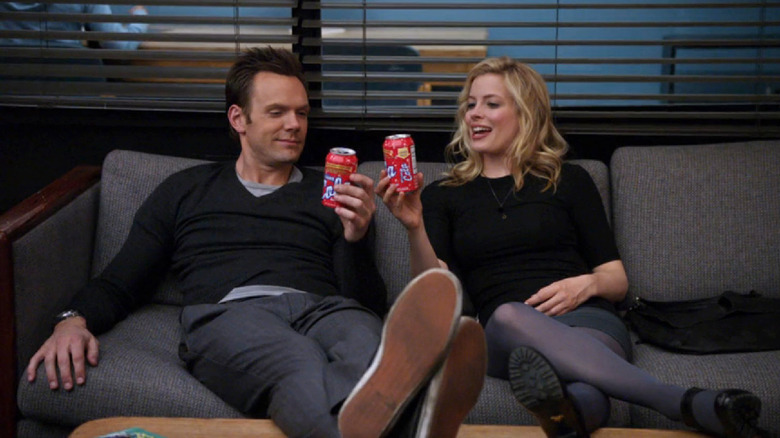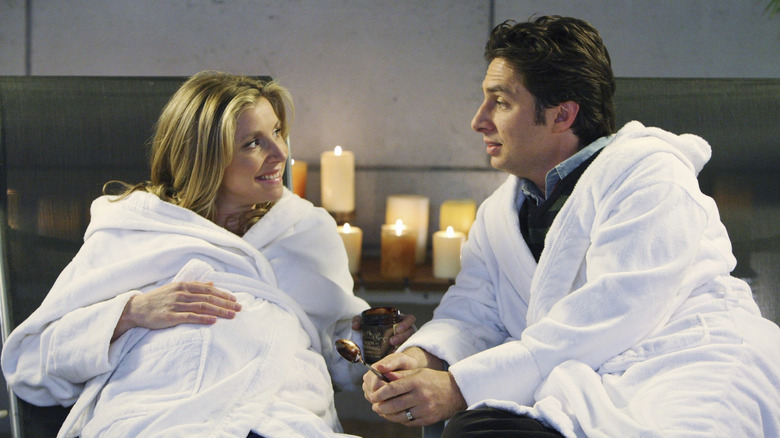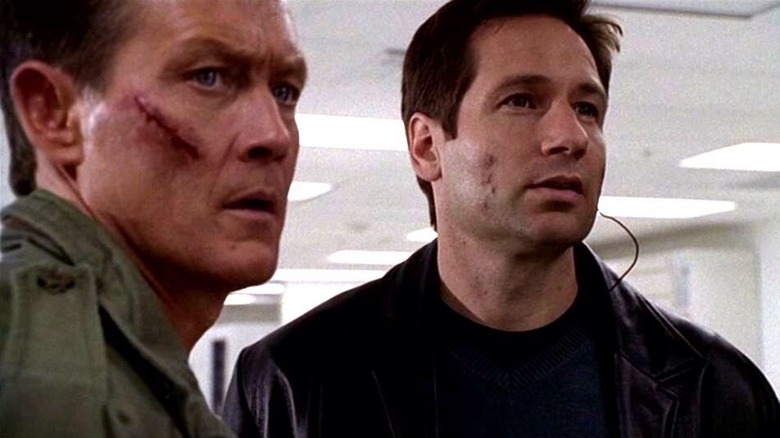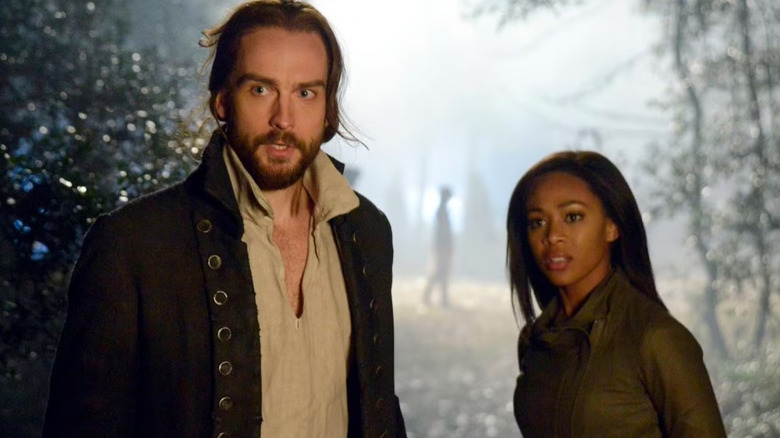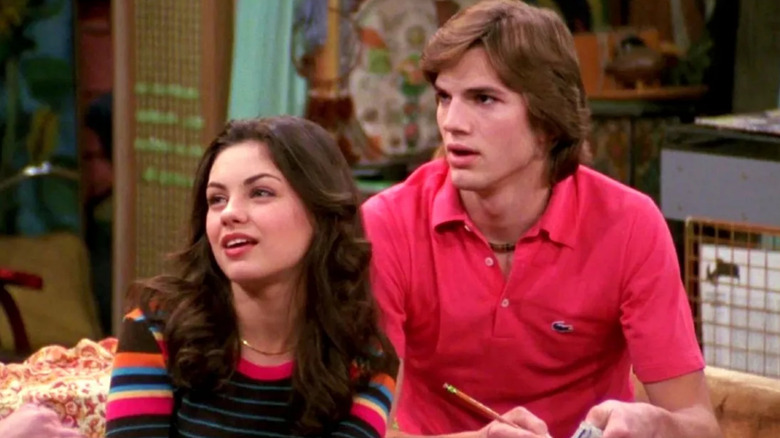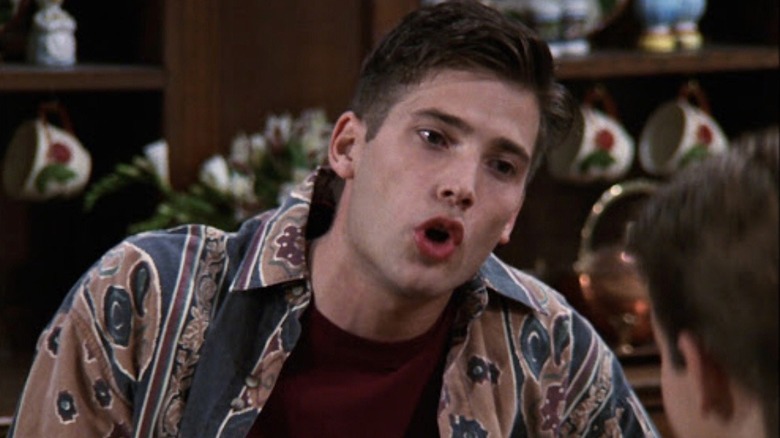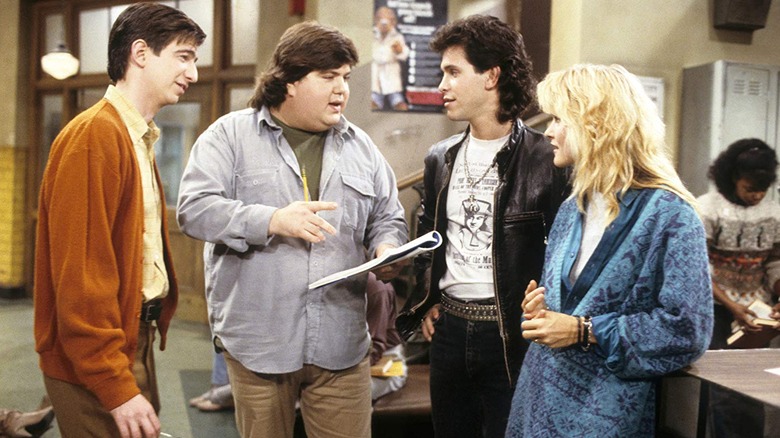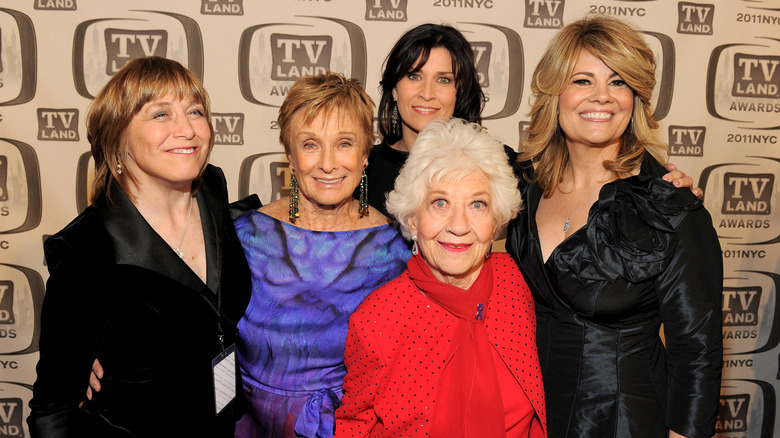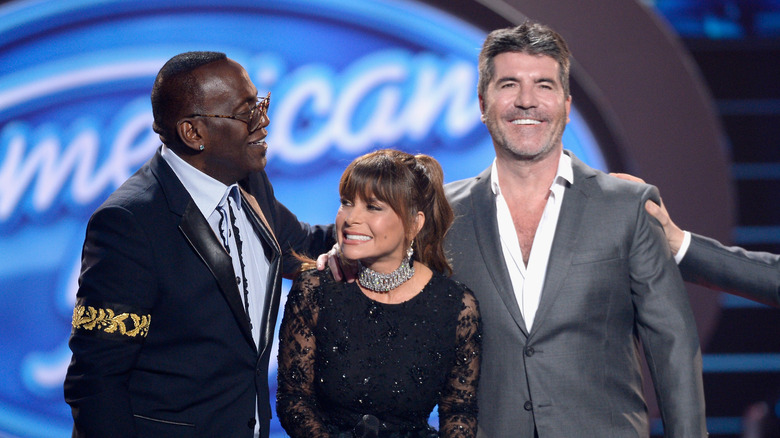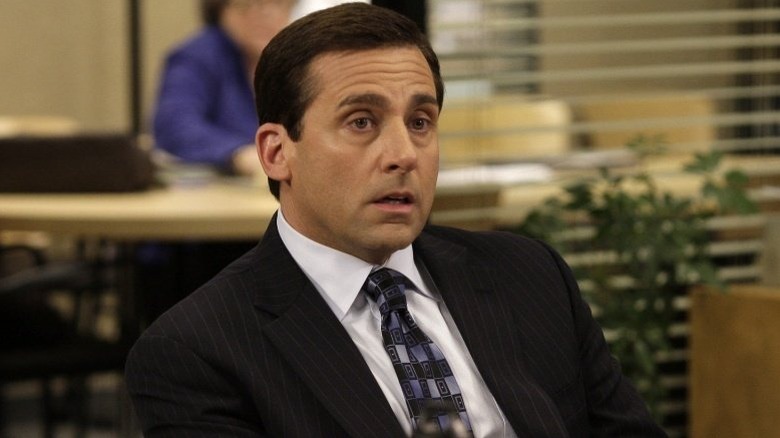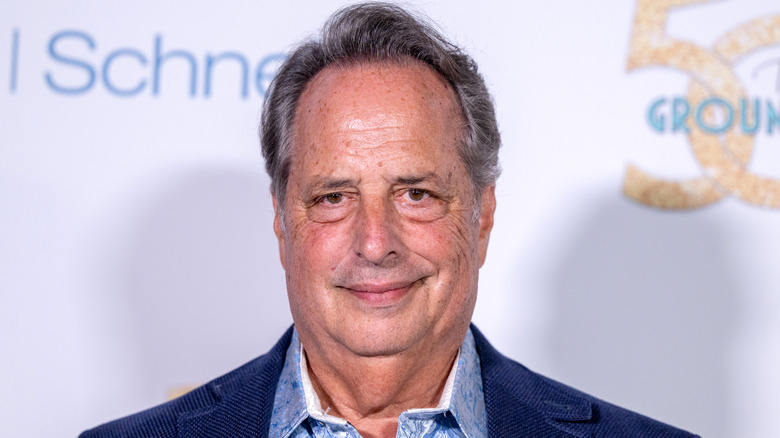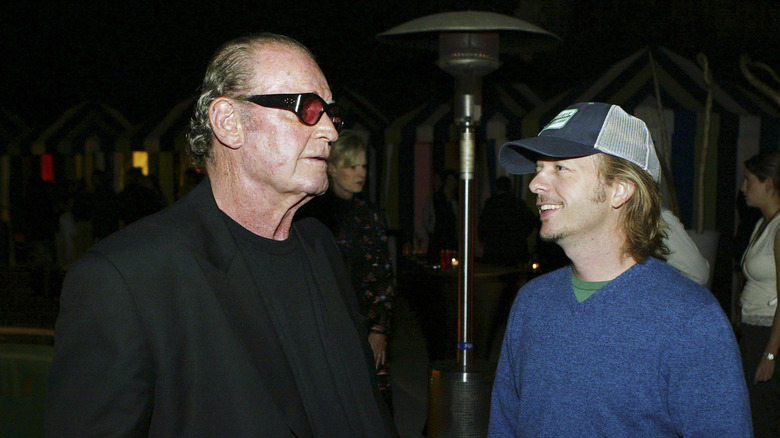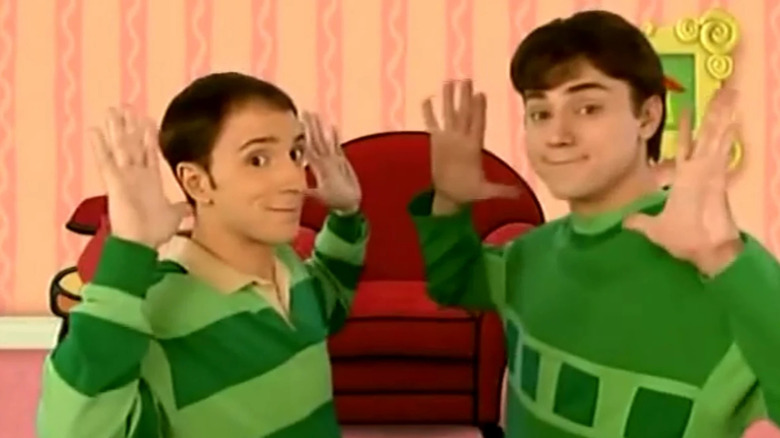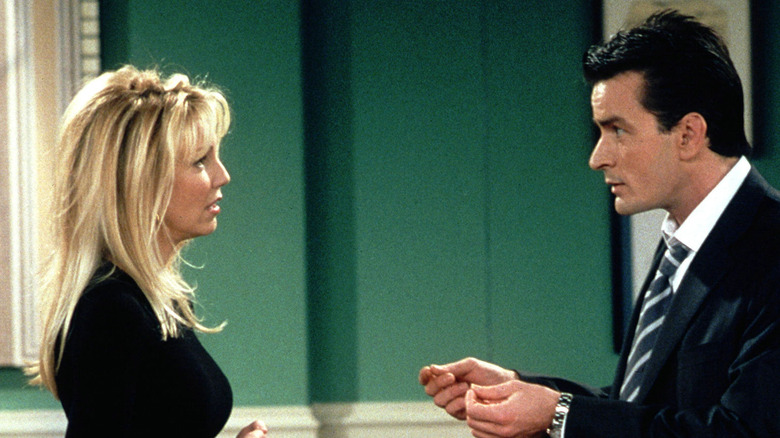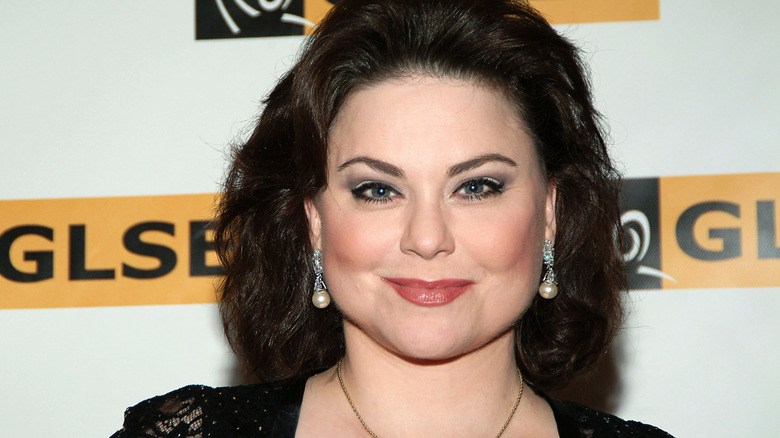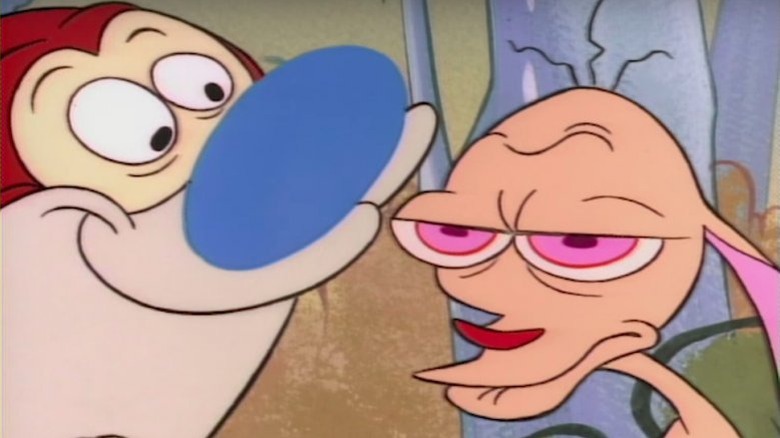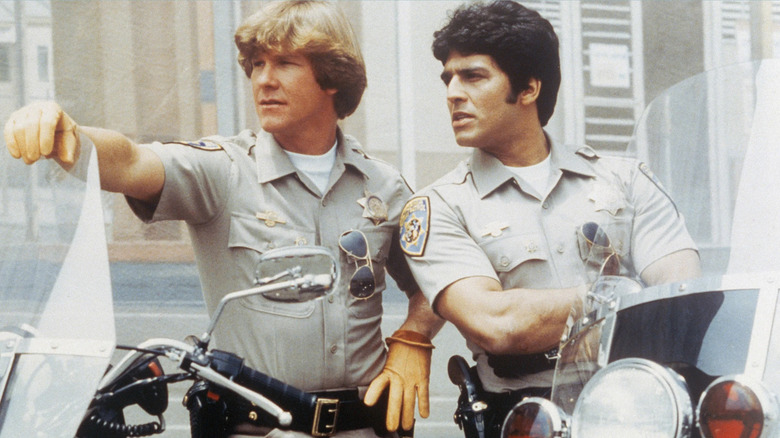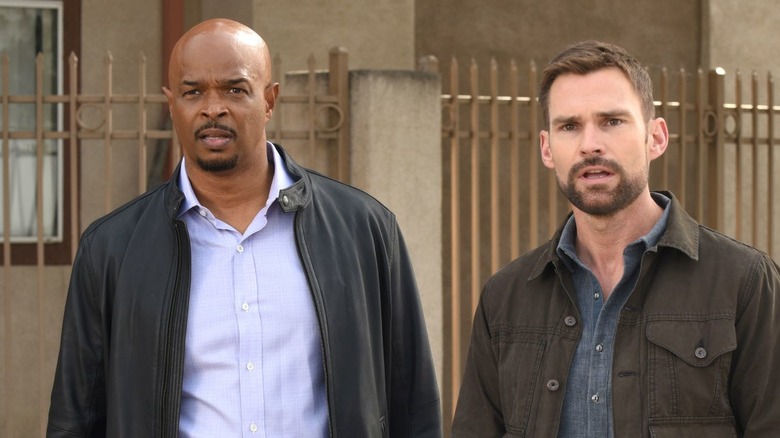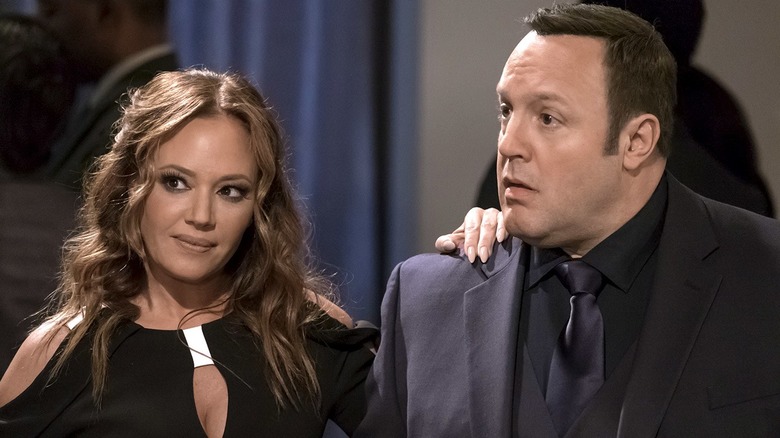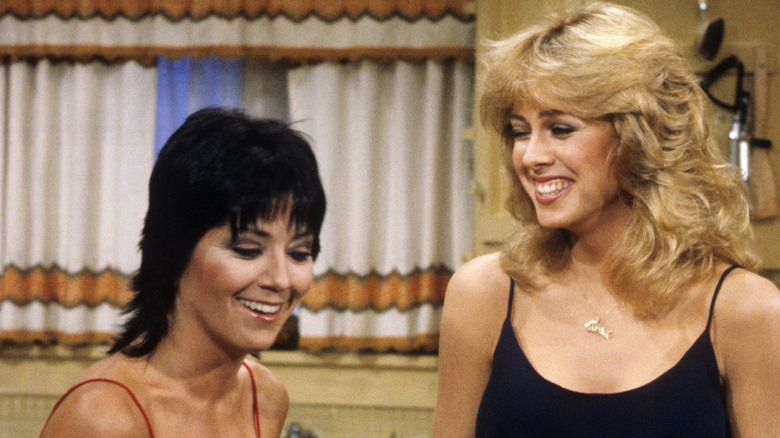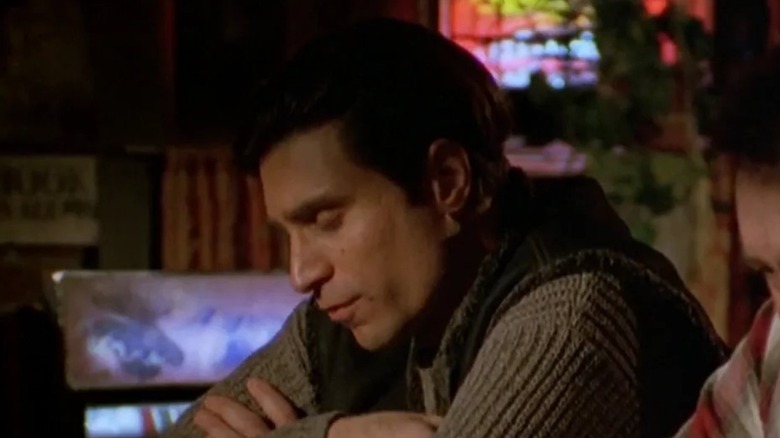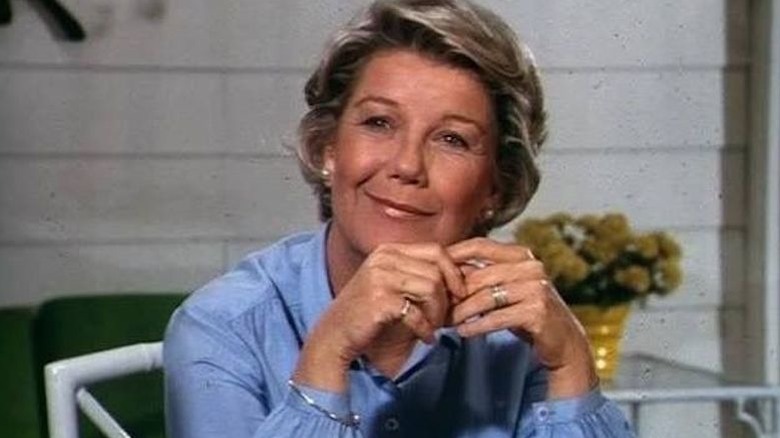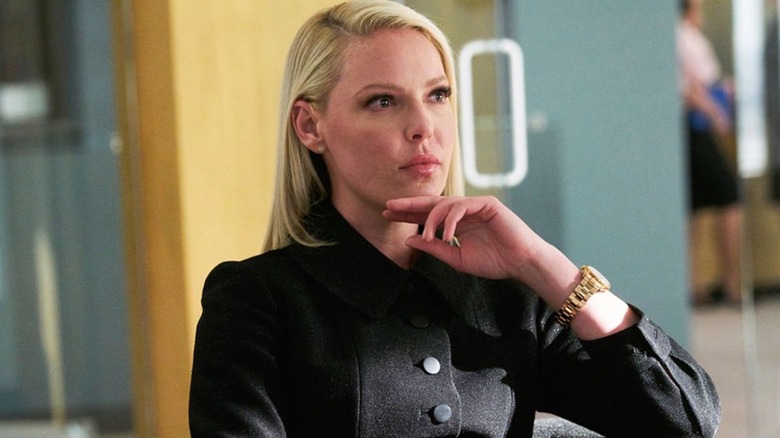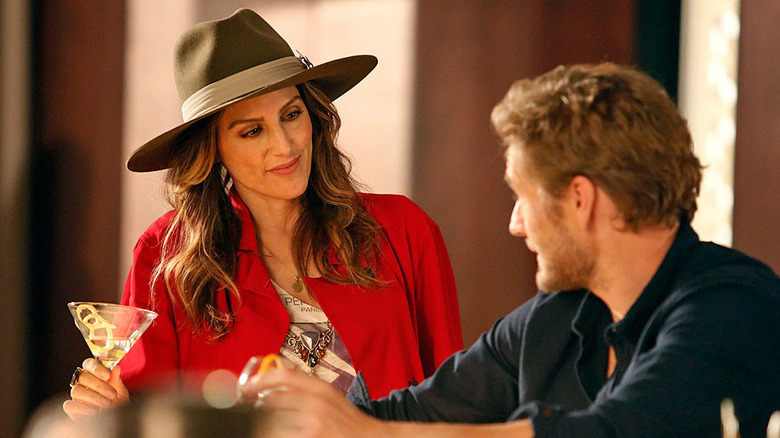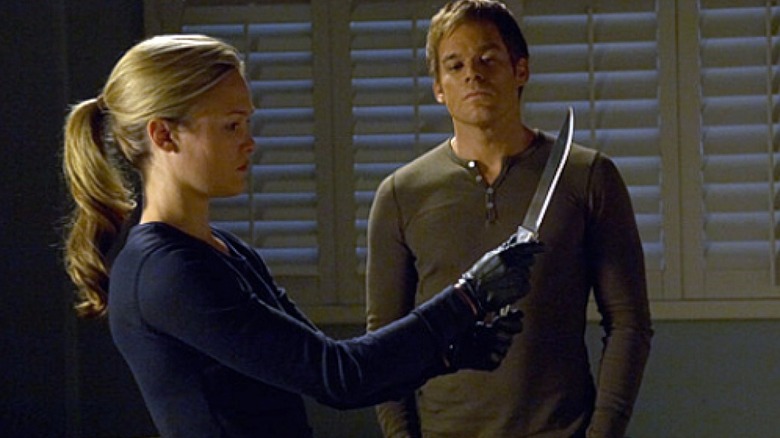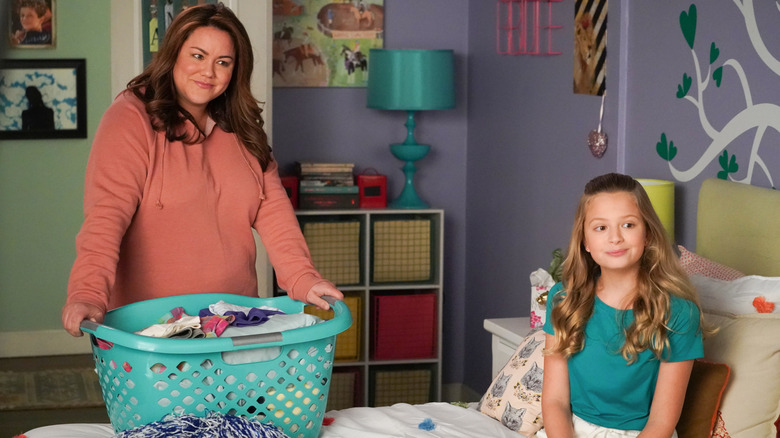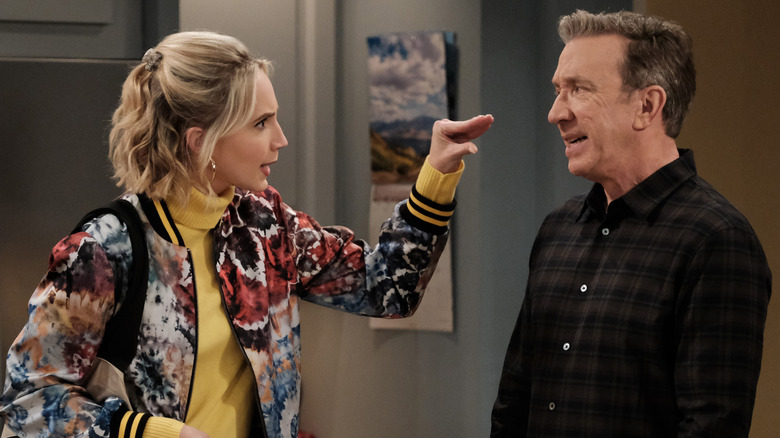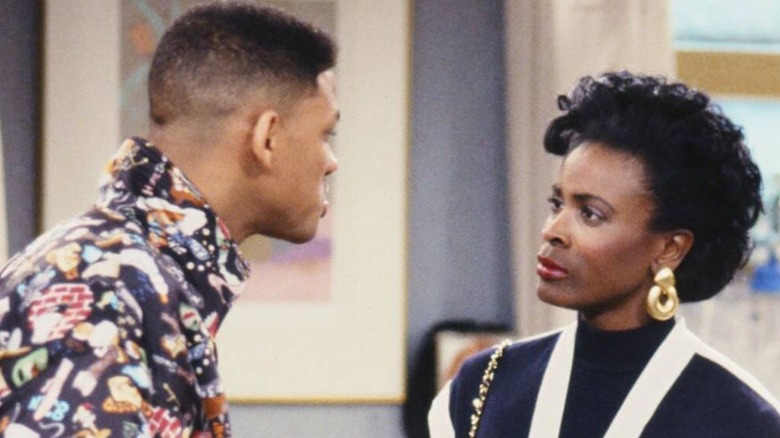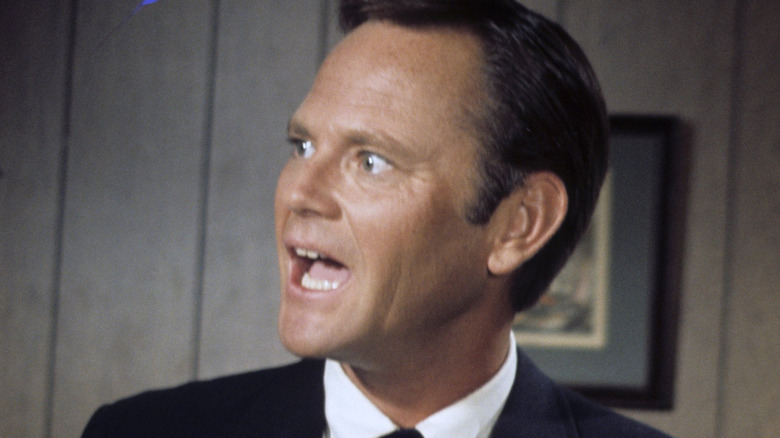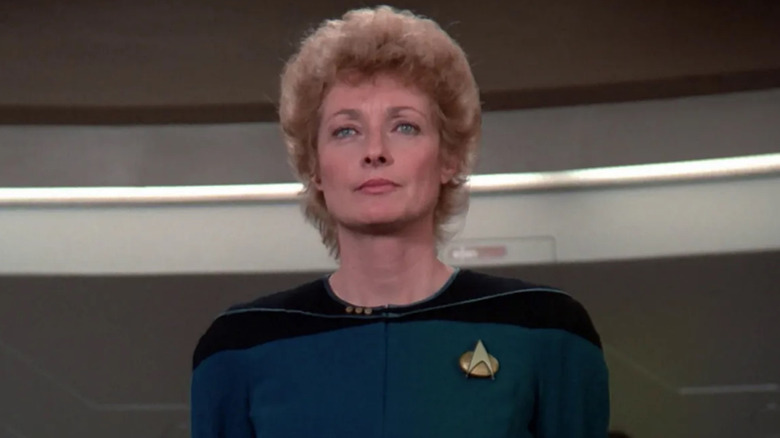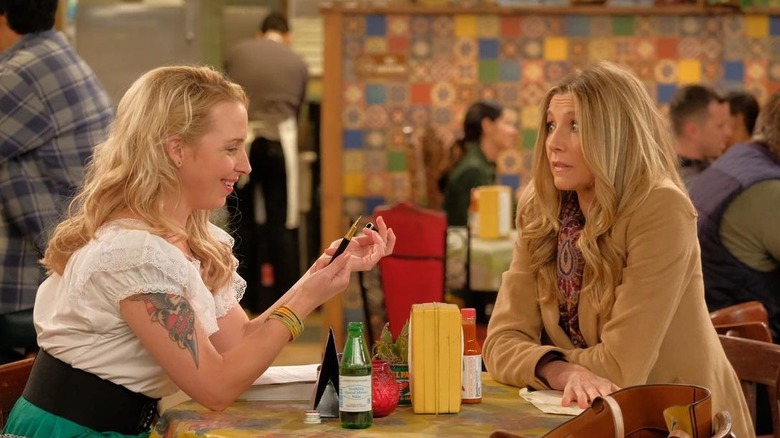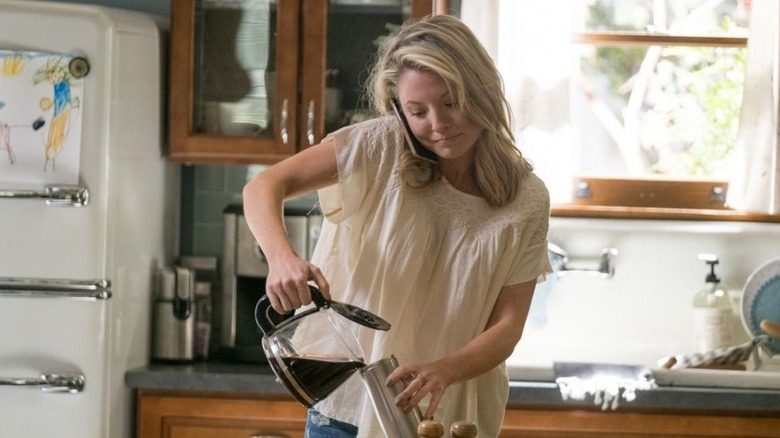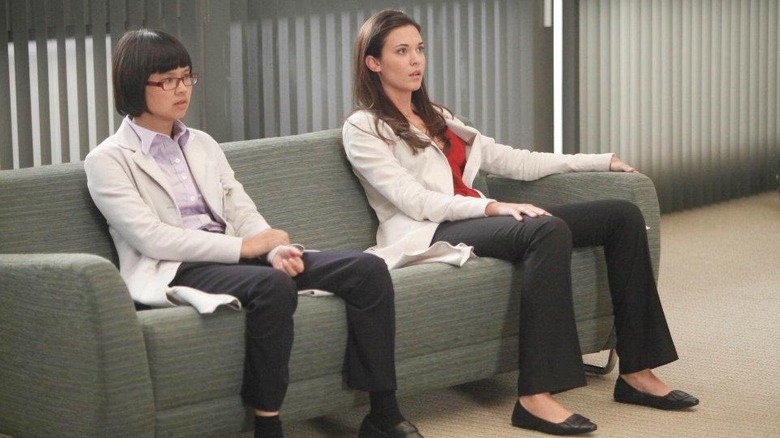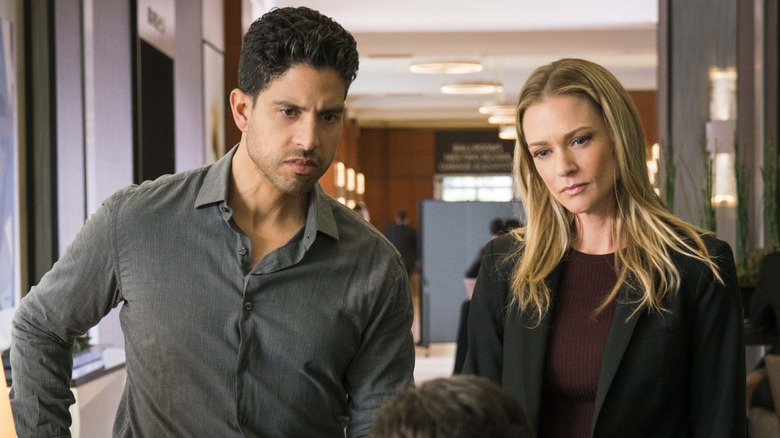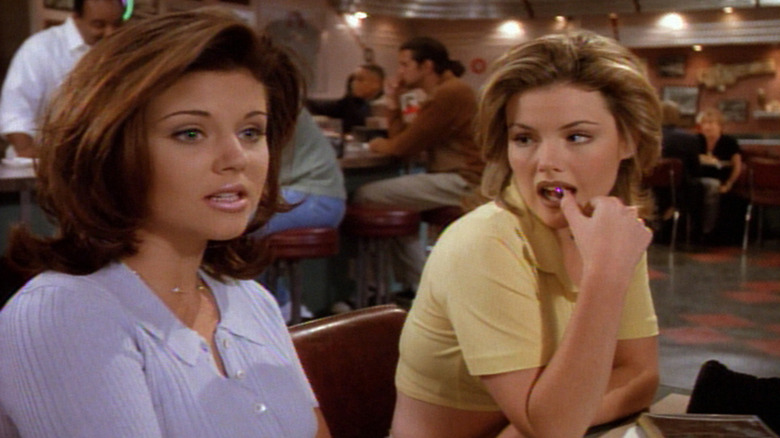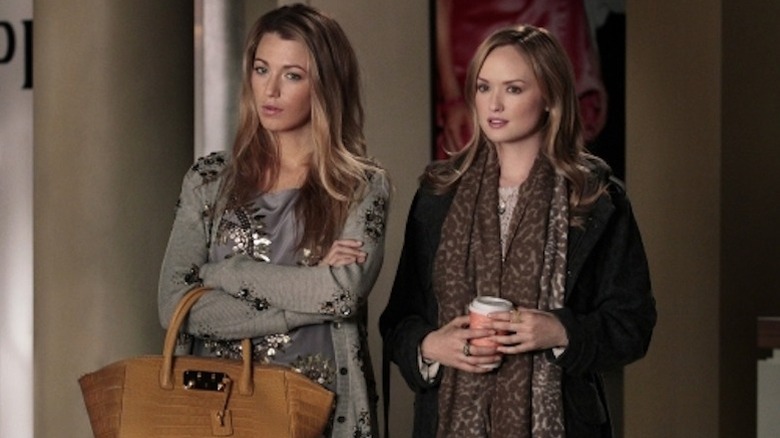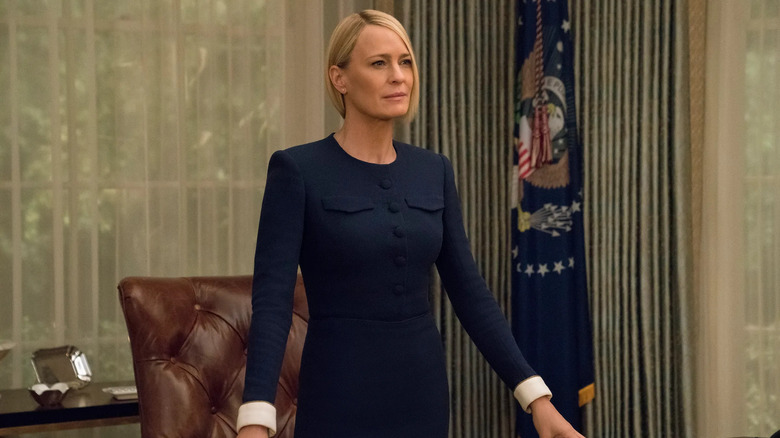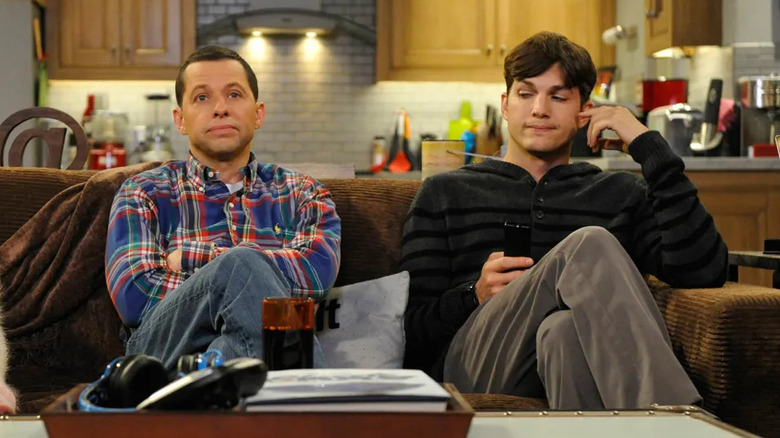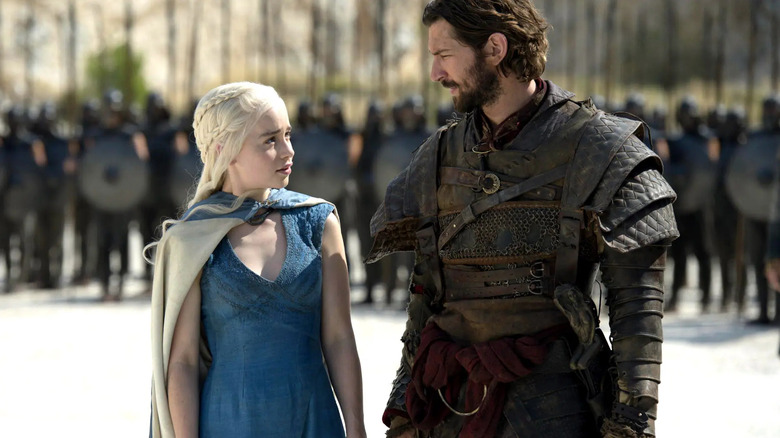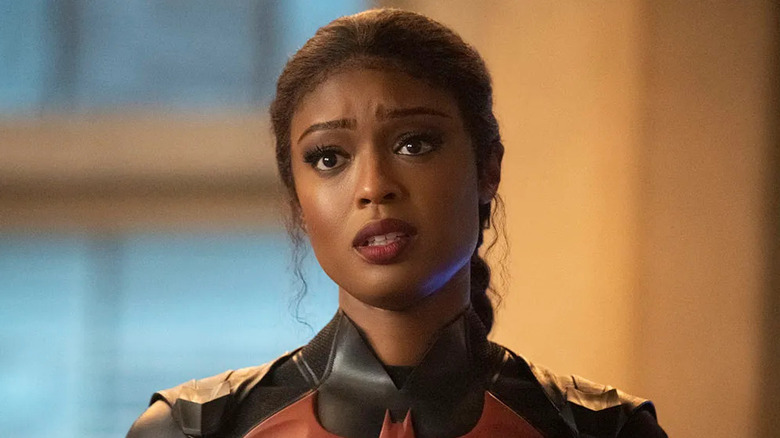Actor Replacements That Totally Ruined The Show
Getting the right chemistry on a TV series can be a tricky thing. Casting, as they say, is everything. So when a show is successful and viewers find comfort in the characters they know and love, changing up the structure isn't exactly a good thing. That could be why, when it comes to recasting actors in a role that was previously established by someone else (or creating a new role to fill that hole), it seems like more often than not audiences prefer to walk away.
Still, plenty of shows have tried over the years. Some have done it out of necessity when a star moved on to other projects, and others have recast following unseen, behind-the-scenes strife between creatives and actors. In the end, some shows do manage to successfully carry on with replacements that even make the show better and stay on the air longer, but there are also many, many examples of series (especially established series) that decided for one reason or another to recast a notable role, and as a result the show never recovered.
Community
"Community" never had a huge audience during its five-year run on NBC, never attracting more than the 4.99 million viewers it averaged during its rookie year of 2009–2010. Nevertheless, NBC kept renewing the critically-acclaimed comedy about the disparate people who comprise a Colorado community college study group, even after difficulties with "Community" creator and showrunner Dan Harmon, who was temporarily fired from the series.
Five seasons was ultimately NBC's limit, but internet giant Yahoo! stepped in and renewed "Community" for a sixth season, intending to position the comedy as a premiere offering on its streaming service Yahoo! Screen. Original regulars Joel McHale, Gillian Jacobs, Danny Pudi, Ken Jeong, and Alison Brie followed the series to Yahoo!, but the show had been losing cast members, and kept losing them as it transitioned to streaming.
Chevy Chase, Donald Glover, and Yvette Nicole Brown were not part of the regular cast for the sixth season. New actors were added, including Keith David and Paget Brewster, but it just didn't work out, and there was no seventh season of "Community" on Yahoo! Screen. Not enough people tuned in and the show didn't generate as much advertising revenue as Yahoo! had hoped. The revenue was so small that it effectively led to the complete shutdown of the service. Yahoo! CFO Ken Goldman said on an earnings call that the company lost $42 million due to "Community" and its two other original series.
Scrubs
This comedy-laced-with-drama about medical interns desperately trying to figure out what they were doing as they worked in a hospital was a critically-acclaimed, Emmy-nominated hit over its first few seasons on NBC. The network dropped "Scrubs" after seven seasons in 2008, only to see ABC pick it up. The show's writers and cast prepared a true series finale at the end of the year, only for ABC to unexpectedly renew the series for Season 9. But star Zach Braff, the focus of the show as young doctor John Dorian (as well as the show's narrator), was ready to move on to other things — even though Hollywood ended up not really casting him anymore.
The show was retooled and rebooted, no longer taking place at a teaching hospital but at a medical school. Doctor Cox (John C. McGinley) and Doctor Turk (Donald Faison) were now teachers instead of active surgeons. Replacing Dorian/Braff as the center of the show and narrator was Dr. Lucy Bennett (portrayed by Kerry Bishé, later of "Halt and Catch Fire"). The big changes were too much to take, and the ninth season of "Scrubs" was its last.
The X-Files
For six seasons of investigating paranormal events, alien abductions, and far-reaching government conspiracies, "The X-Files" changed TV while no one noticed while becoming a massive hit for Fox. It made huge stars out of its lead actors, David Duchovny (as FBI investigator Fox Mulder) and Gillian Anderson (as Mulder's partner, Dana Scully). But prior to the series' seventh season in 1999, Duchovny sued 20th Century Fox, claiming that it had sold rights to reruns of the show at a discount to its own affiliates, thus cheating him and other actors out of profits they otherwise would have earned.
While the lawsuit was eventually settled, it was filed right when Duchovny was negotiating to work on future seasons of the show, and neither he nor Fox were keen to continue working together. An agreement was reached: Mulder would mysteriously disappear at the end of Season 7, and would only appear in a handful of episodes in Season 8.
To replace him, producers auditioned dozens of actors, eventually settling on Robert Patrick as FBI agent John Doggett. He teamed up with both Scully and another new agent, Monica Reyes (Annabeth Gish), hired in case Anderson also decided to leave the show after Season 8. It didn't much matter, because without Duchovny, or the chemistry between him and Anderson, viewers tuned out. From a high of 17.1 million viewers and a rank of #11 in 1997-98, ratings slipped down to #67 and about half as many viewers in 2001-02. "The X-Files" disappeared from TV at that point, resurfacing in 2016 — with both Duchovny and Anderson back — for two shorter final seasons.
Sleepy Hollow
Fox's supernatural cop drama "Sleepy Hollow" was always a little bit different than other cop shows — particularly since one of its main characters was Ichabod Crane (Tom Mison) from Washington Irving's 1820 short story "The Legend of Sleepy Hollow," who comes back to life in the present day after having died 200-something years prior. (That element is inspired by Irving's other most famous story, "Rip Van Winkle," about a man who wakes up after sleeping for 20 years.)
Crane subsequently helps crimefighters fight crime and supernatural menace, particularly police lieutenant and FBI agent Abbie Mills (Nicole Beharie). Over three seasons, "Sleepy Hollow" settled into its role as a quirky police procedural, and then it did the unthinkable — Abbie died and Beharie left the series.
Despite a steep loss of viewers from Season 1 to Season 3 (the show fell from #38 in the ratings down to #99), "Sleepy Hollow" returned for a fourth season, sans Abbie. Ichabod was now partnered with a Homeland Security agent named Diana Thomas (played by new cast addition Janina Gavankar). The cast reboot didn't do the show any favors — after falling to #123 in the ratings, "Sleepy Hollow" was canceled.
That '70s Show
After seven seasons of starring in Fox's hit nostalgic sitcom "That '70s Show," Topher Grace (who played Eric Foreman) decided to leave the series in order to more fiercely pursue his blossoming film career. So did the show's other biggest star, Ashton Kutcher (who played Michael Kelso), although he did stick around for a few episodes in Season 8 to explain his character's departure. (Eric had moved to Africa; Kelso moved to Chicago.)
To replace two very big holes in its cast, producers hired just one actor, "Mad TV" veteran Josh Meyers. His character, Randy, gets a job at Hyde's (Danny Masterson) record store Grooves and has a brief relationship with Donna (Laura Prepon), Eric's old girlfriend. Neither Randy nor Meyers had much time to mesh with the ensemble, because the decimated cast may have contributed to the show's diminished popularity — and ending. The eighth season of "That '70s Show" would be its last.
Step by Step
"Step by Step" was an ABC sitcom about the Lamberts, a blended family that results when Carol (Suzanne Somers) married Frank (Patrick Duffy). In addition to all their kids, Frank's nephew Cody (Sasha Mitchell) lived in a van outside the house — a good-natured, air-headed California dude and family sitcom version of Ted, the character Keanu Reeves played in "Bill & Ted's Excellent Adventure."
Affable and enthusiastic acting by Mitchell made Cody a fan favorite — until 1995, when Mitchell was arrested for spousal assault. He was convicted later that year, and sentenced to three years of probation and spousal abuse counseling. Mitchell wound up behind bars for violating his parole: He skipped town, missed too many counseling courses, and reportedly attacked his wife again, this time while she was holding their baby.
By the beginning of the 1996-97 season of "Step by Step," Cody — and Mitchell — were gone. Filling the Cody-sized hole of goofiness was Jean-Luc, an excitable, heavily-accented hairdresser colleague of Carol's. Playing Jean-Luc: Bronson Pinchot, best known for playing the excitable, heavily-accented Balki on "Perfect Strangers" and the excitable, heavily-accented Serge in "Beverly Hills Cop." The new blood didn't work — ABC canceled "Step by Step" at the end of the season. The show then moved to CBS for a final year — without Pinchot — and a single guest appearance from Mitchell.
Head of the Class
The high school sitcom "Head of the Class" debuted on ABC in 1986. It explored the relationships between a diverse group of highly advanced Manhattan students and their history teacher/mentor Charlie Moore, played by Howard Hesseman of "WKRP in Cincinnati" fame. A big part of why "Head of the Class" worked is that it was ensemble-powered — the various kids had personal and academic problems, and Mr. Moore helped them sort things out. Hesseman portrayed Moore with understatement and subtlety, letting his younger co-stars take center stage.
However, the actor hated "Head of the Class." In 1989, he told a reporter that he thought the show didn't have much worth, and that he was "not doing the show that I was led to believe I'd do, and it's difficult for me to get off that." Unsurprisingly, Hesseman left the series in 1990. In his place was Scottish comedian Billy Connolly as a teacher named Billy McGregor, and while Connolly is a gifted and frenetic comedian, that style didn't mesh with "Head of the Class."
All of a sudden, a show about high school kids' problems was a show about wacky Mr. McGregor. ABC seemed to realize that too, canceling "Head of the Class" in 1991 and quickly ordering up a new show called "Billy." Connolly still played McGregor, except he was no longer a teacher in Manhattan, but living as a boarder in a California single mother's house. "Billy" lasted just 13 episodes.
The Facts of Life
"The Facts of Life" went through a lot of changes. After the first season (1979-1980), the number of main characters was cut from 10 to just five: Eastland boarding school housemother Mrs. Garrett (Charlotte Rae) and four female students. After those four graduated in Season 4, Mrs. Garrett opened a gourmet shop and hired "her girls." And after Season 7, Rae herself left the show. She thought it was time to move on, later telling Entertainment Weekly that she felt she "really wasn't needed that much," as Mrs. Garrett had helped the girls transition into adulthood, and that the show could continue on without her.
But producers loved the show's dynamic — wise older woman doles out advice to young women — so they created the role of Mrs. Garrett's sister Beverly Ann, and cast Cloris Leachman of "The Mary Tyler Moore Show" and "Young Frankenstein." But according to frequent episode director John Bowab, Leachman "just never had the connection with the girls that Charlotte had," suggesting that maybe the series was "past the point of the girls being given advice to." The ninth season, the second with Leachman, would be the last for "The Facts of Life."
American Idol
"American Idol" has created a number of stars, such as Kelly Clarkson, Jennifer Hudson, Adam Lambert ... and most of all, Simon Cowell. Audiences couldn't get enough of the show's "mean judge," a veteran of the U.K. music industry (he'd guided the careers of pop groups like Westlife, Five, and Robson & Jerome) who was brutally and hilariously honest with contestants.
Cowell was the biggest star of the series, which was the most-watched show on TV for an unprecedented eight straight seasons. But in 2010, after nine seasons, he moved on, in part to develop the American version of his British talent series "The X Factor." "Idol" producers had a hard time replacing Cowell, as well as fellow original judge Paula Abdul. The "Idol" judges' table saw a lot of stars take a stab at it, including Steven Tyler, Mariah Carey, Nicki Minaj, and Keith Urban, but actual singers just couldn't fill the void left by the music industry guy who criticizes singers. By the time Fox pulled the plug on "American Idol" in 2016 (although it would be relaunched by ABC just two years later), it had slipped out of the top 20 most-viewed shows.
The Office
Steve Carell was a well-known comic force from "The Daily Show" and the film "Anchorman" before he debuted in spring 2005 on "The Office," an American-produced version of Ricky Gervais's hit BBC sitcom. Just a few months later, he starred in Judd Apatow's smash hit film "The 40-Year-Old Virgin" and was suddenly in demand as a movie star, but he stayed on with "The Office" as intolerable Dunder Mifflin Paper boss Michael Scott for the better part of seven seasons.
Carell's contract with "The Office" was up in 2013, and this time he opted to walk away from the series while it was still a critical and ratings hit for NBC (it had even won the Emmy Award for Outstanding Comedy Series). The awkward, lovelorn Michael Scott finally found love with HR director Holly, and they moved away to Colorado toward the end of Season 7. But Dunder Mifflin still needed a boss, and that came in the form of oily, unsettling Robert California (James Spader), CEO of Dunder Mifflin parent company Sabre.
During California's reign, half the characters were shipped to Florida to open a Sabre store, where they fell under the direction of a new boss, Nellie Bertram (Catherine Tate). By the end of Season 8, old Dunder Mifflin executive David Wallace (Andy Buckley) bought back the company and forced California out, although Nellie stayed on as special projects manager. It was the first time since the show's truncated, poorly-reviewed first season that it didn't receive any major Emmy nominations. For the ninth and final season, the focus was back on the ensemble of paper company employees inside the office, with salesman Andy Bernard (Ed Helms) ostensibly serving as the regional manager.
NewsRadio
NBC's critically-acclaimed but low-rated comedy "NewsRadio" had no plans to replace one of its characters and best-known star, but tragedy forced the producers' hand. Between the show's fourth and fifth season, star Phil Hartman was shot by his wife before she turned the gun on herself. Partly in order to complete enough episodes to sell the show into syndication, "NewsRadio" was picked up for another season anyway.
In the season premiere, it was explained that Hartman's character, pompous radio newsreader Bill McNeal, died of a sudden heart attack. Replacing him at the newsreader's desk was a new character, Max Louis. Weird, insecure, and wholly unqualified for the position, he was portrayed by Hartman's friend and "Saturday Night Live" costar Jon Lovitz. While Lovitz is a great comic actor, he just couldn't overcome the sadness looming over "NewsRadio," and Lovitz's first season would be the show's last.
8 Simple Rules
This ABC sitcom, originally titled "8 Simple Rules ... For Dating My Teenage Daughter," was forced to reformat after the unexpected death of its star. "8 Simple Rules" (as it was known after its first two seasons) was built around "Three's Company" vet John Ritter, who starred as cranky suburban dad Paul Hennessy, desperately trying to rein in his wild teenage children.
Filming had just begun on the second season of the series in September 2003 when Ritter fell ill on the set and sought medical treatment. He died later that day of a heart defect that had never been diagnosed. Ritter was only 54 years old. ABC announced that "8 Simple Rules" would go on — and it did, with some necessary changes.
No longer a show about a cranky dad, it became one about a family trying to pick up the pieces after the death of its patriarch (Paul was said to have died of a sudden heart attack). Two new stars joined the cast to fill the void left by Ritter: cousin C.J. (David Spade) and Grandpa Jim (James Garner). In its first season (2002-03), "8 Simple Rules" fared a respectable #46 in the TV ratings. Without Ritter, by Season 3, the show moved to Friday nights and finished in 91st place. "8 Simple Rules" was not renewed for a fourth season.
Blue's Clues
Actor/musician Steve Burns beat out roughly 1,000 other actors in 1996 for the only human role on "Blue's Clues," Nickelodeon's interactive, animation/live action hybrid show for preschoolers. Burns played Steve, the striped-shirted host and owner of the cartoon dog named Blue — he'd talk directly to the young viewers at home, urging them to help him solve each episode's riddle or mystery by yelling things at their screens.
In 2002, after about 100 episodes, Burns decided it was time to leave the series. He wanted to take on other roles (before he could get typecast) as well as perform music (he's collaborated with the Flaming Lips, among other acts), and also, as he joked in a "Nick Jr." special, "I knew I wasn't gonna be doing children's television all my life, mostly because I refused to lose my hair on a kid's TV show, and it was happening. Fast."
Nickelodeon hired actor Donovan Patton to be the new host of "Blue's Clues," a character named Joe. So as not to traumatize or confuse the show's very young viewers, the transition from Steve to Joe occurred with a primetime special. Steve carefully explained that he was leaving for college, and that Joe would be looking after Blue. Patton as Joe proved to be the gentle and able host "Blue's Clues" needed, but he just couldn't replace someone so closely associated with the role to an army of toddlers. After around 50 episodes with Patton as Joe, "Blue's Clues" was canceled.
Spin City
In 1996, Michael J. Fox returned to regular series television for the first time since the end of "Family Ties" with "Spin City." On the ABC sitcom, he played a wheeler-dealer for a New York City deputy mayor named Michael Flaherty. Two years later, Fox announced that he had been battling Parkinson's disease and in 2000, Fox left the show, in part to spend more time raising funds for Parkinson's research. His character left New York to become a lobbyist in Washington, D.C.
Replacing him as deputy mayor was a guy named Charlie Crawford, portrayed by Charlie Sheen. With Fox out, the show became more of a romantic comedy surrounding Sheen and Caitlin, the marketing consultant played by Heather Locklear, but the Fox-free show didn't quite work. Fox left in the fourth year, when the show had 8.7 million viewers. The next year, they were down to 7.1 million. In 2001-2002, they dropped to just over 5 million. At that point, ABC canceled "Spin City."
Designing Women
Delta Burke had not been happy on the set of "Designing Women," in which she played Suzanne Sugarbaker, for years. In 1990, she told the Orlando Sentinel that the show was "not a good workplace, not a good environment." She even claimed that producer Harry Thomason routinely screamed at cast members, told them they were expendable, and even criticized Burke when she gained weight.
CBS grew so tired of Burke lashing out at the show's producers and the network in the press that they fired her from "Designing Women" in 1991. Weary of a tense workplace, cast member Jean Smart (scatterbrained Charlene) also left the series after the 1990-91 season. That meant that "Designing Women," a top 20 show, had lost half of its main cast.
Replacing Burke was Julia Duffy, fresh off a seven-year run on CBS's "Newhart," as Suzanne's cousin, the equally haughty Allison Sugarbaker. Replacing Jean Smart was "Saturday Night Live" veteran Jan Hooks as Carlene, Charlene's similarly dumb-dumb sister. Despite ratings on par with previous years, CBS fired Duffy after her sole season on the series, and replaced her with Judith Ivey as a rich Texan widow named B.J. Poteet. It didn't do much good, because CBS moved the show to Friday nights, where it slipped into ratings oblivion — and then cancellation.
The Ren & Stimpy Show
In 1991, Nickelodeon debuted its first three fully original "Nicktoons," including John Kricfalusi's "The Ren & Stimpy Show." A subversive delight about a rage-prone Chihuahua and an idiotic cat, it became a cult hit among adults. Before long, Kricfalusi clashed with Nickelodeon over the direction of "Ren & Stimpy" and he was forced to work with story editor Mitchell Kriegmann. He'd get to do a couple of his "really crazy" episode ideas, and then he'd also do a couple of "heart-warming ones."
But the relationship soured, especially as Kricfalusi routinely missed deadlines. In 1992, barely a year after "Ren & Stimpy" debuted, Nickelodeon forced Kricfalusi out (offering him a "consulting" role, which he declined). The network transferred production of the show from Kricfalusi's Spümcø, Inc. to its own, in-house Games Animation studio, and placed Kricfalusi's old producing partner, Bob Camp, in charge. But not only did the show lose its creator, it also lost a crucial cast member — Kricfalusi provided the voice of Ren.
Amidst the hubbub, Billy West, the voice of Stimpy, told Kricfalusi he was going to leave the show in solidarity, but instead opted to stay and take over the voice of Ren. All that turmoil and change left the show missing that certain something that had once made it the hot, hip new series with some of the best ratings among all children's TV offerings. It plodded along until it quietly fell off the Nickelodeon schedule in 1995, with a final episode airing about a year later.
CHiPs
The formula for the success of "CHiPs" was pretty simple: two hunky young California Highway Patrol officers zoom around on cool motorcycles, busting criminals and flirting with beautiful Californian women. Of the two leads, Erik Estrada (as Officer Frank "Ponch" Pocherello) and Larry Wilcox (as Officer Jon Baker), Estrada was the breakout star. So much so that during the show's fifth season in 1981, he refused to report to work if he wasn't given a larger share of the lucrative profits generated by syndicated reruns of "CHiPs."
While Estrada's people and the producers' people hammered out an agreeable contract, popular Olympic champion and future reality TV star Caitlyn Jenner (then known as Bruce Jenner) was hired to play Officer Steve McLeish, a new partner for Jon. Ultimately, Estrada was back on set after missing six episodes. Then the show faced another personnel crisis, this time with Wilcox.
Apparently wanting to "pursue other creative projects," Wilcox opted not to return to "CHiPs" for its sixth season. He was then replaced by Tom Reilly, portraying Officer Bobby "Hot Dog" Nelson. The revolving door of TV cops only served to damage the show's consistency and popularity. After that sixth, Jon-less season, "CHiPs" was done.
Lethal Weapon
For the Fox television adaptation of "Lethal Weapon," Clayne Crawford took over for Mel Gibson as "loose cannon" Martin Riggs. And if on-set reports were any indication, Crawford was even harder to control than his character. In an episode he directed, a special effects explosion went awry, sending a piece of debris at co-star Damon Wayans, playing Roger Murtaugh. When Wayans complained, Crawford called him "the biggest crybaby" he'd ever met. Another time he reportedly swore at a group of children on the set; on yet another occasion, he proved so hard to work with that a director walked off the set in the middle of a shoot.
In May 2018, after two seasons, producers eliminated what they thought was the root cause of the show's problems and fired Crawford. They rushed to find somebody to replace him, and quickly hired Seann William Scott to play Wesley Cole, a new partner for Murtaugh. (As for Crawford's character? He died offscreen.) The human bandage that was Scott couldn't save the show, however. All that tension didn't totally dissipate, with Wayans announcing he planned to leave the series in the middle of the season. Fox decided to wash its hands of the whole thing in May 2019 and canceled "Lethal Weapon."
Kevin Can Wait
From 1998 to 2007, Kevin James and Leah Remini starred on the popular CBS sitcom "King of Queens," with James moving on to star in a string of movies like "Grown Ups" and "Paul Blart: Mall Cop." In 2016, he returned to the weekly CBS laugh-track-assisted-sitcom grind with "Kevin Can Wait," in which he portrayed Kevin Gable, a family man who has to delay retiring from his police job due to family and money issues. Like "King of Queens," "Kevin Can Wait" fell into the "schlubby doofus with smart wife who is out of his league" sitcom subgenre.
The big difference between the shows was the female lead, subbing out Leah Remini for Erinn Hayes as Kevin's wife, Donna Gable. At least, that's how it was for the first season. "Kevin Can Wait" producers revamped the show for Season 2: They killed off Donna Gable and fired Hayes.
"We were literally just running out of ideas," James told the New York Daily News. "I get that people are like 'Whoa, why would you do this?' But it really felt like a thing like this was needed for this show to drive forward." They also brought in a new face, who was really an old face: Remini joined "Kevin Can Wait" as Kevin's business partner, Vanessa Cellucci. However, the nostalgic retooling couldn't overcome the weird behind-the-scenes shakeup, and ratings actually dropped in Season 2. After the conclusion of the sitcom's second, ill-fated season, CBS didn't wait to cancel "Kevin."
Three's Company
"Three's Company" could be regarded as a piece of '70s throwaway television, and while it did feature a lot of scantily clad women and silly plots about people misinterpreting things and jumping to conclusions, it also starred a tight ensemble of funny performers with the pratfall-prone John Ritter as Jack Tripper, Joyce DeWitt as voice of reason Janet Wood, and Suzanne Somers as stereotypically bubbly dumb blonde Chrissy Snow.
In 1979-1980, the fourth season of "Three's Company" was the second-most-watched show on TV, and Somers, rightfully believing that she had contributed to that success, asked for a raise from $30,000 per episode to $150,000 — about the same salary Ritter was getting. Producers counter-offered an extra $5,000 a week, prompting Somers to refuse to appear in a couple of episodes. When she did return to the show, producers almost completely eliminated Chrissy, reducing Somers to a one-minute appearance at the end of each episode in which she checked in, via telephone, from her parents' house far away.
Producers had already brought in Jenilee Harrison to play Cindy Snow — cousin of Chrissy, and also a not-so-bright blonde. By 1981, Somers had been fired altogether, although Harrison ultimately left in 1982, as Somers' shoes (and short shorts) were hard to fill. Priscilla Barnes joined the cast as Terri Alden following Harrison's departure, but the turnover took a toll, and ABC ended it all in 1984.
Northern Exposure
An ensemble dramedy with a culturally diverse cast set in an often surreal rural Alaska, "Northern Exposure" was radically different from its early '90s contemporaries like "Major Dad" and "Matlock." Rob Morrow starred as Dr. Joel Fleischman, a crabby, snobby New York City doctor who heads north to service the tiny town of Cicely. He enjoys a will-they-or-won't-they relationship with bush pilot Maggie (Janine Turner), makes friends with filmmaker Ed (Darren E. Burrows) and ex-astronaut Maurice (Barry Corbin), and hangs out at a bar run by the elderly Holling (John Cullum) and his free-spirited, much younger wife Shelly (Cynthia Geary).
"Northern Exposure" was a big hit, reaching the top 20 in the ratings and earning four straight Emmy nominations for Outstanding Drama Series, winning the prize in 1992. But Dr. Fleischman's desire to leave Alaska never faded, and Morrow wanted to bounce, too. Halfway through the show's sixth season (1994-1995), Morrow fled "Northern Exposure," reportedly to pursue new acting challenges and a movie career.
Cicely found itself a new physician: Dr. Phillip Capra, portrayed by Paul Provenza, a respected stand-up comedian who had little acting experience apart from his work on sitcoms like "Empty Nest" and "The Facts of Life." "I don't think it's a radically different show," Provenza told the Chicago Tribune. Audiences and/or CBS disagreed — after just half a season with Provenza at the helm, the network canceled "Northern Exposure."
Dallas
"Dallas" had its fair share of character replacements during its run from 1978 to 1991, as any show that airs for 14 seasons inevitably does. But one that still stands out with fans to this day is the role of Miss Ellie Ewing. Barbara Bel Geddes originated the part and played it right up until 1984, when she left in order to have a quadruple bypass heart surgery. At the time she was replaced by Donna Reed, and fans were not into it.
In fact, fans were so not into it that six months later, when Bel Geddes had recovered, she was asked back onto the show. Reed didn't go down without a fight, though — she tried to sue and halt production. In the end, the judge didn't agree with her and the series carried on. Bel Geddes continued playing Miss Ewing for the remainder of the series, bringing life to the character for 300 episodes.
Suits
When this USA show hit airwaves in 2011, critics had positive but somewhat mixed reviews about the premise, which turned the tired legal drama format on its head with the introduction of Mike Ross (Patrick J. Adams), a wannabe lawyer without a degree, and Harvey Specter (Gabriel Macht), the hotshot attorney who mentors him. Shot in Toronto, the series wound up being a massive hit for the network, and was considered the last of its blue-skies era.
However, that all ended in 2017, when Adams and Meghan Markle (who played his onscreen love interest Rachel Zane) announced they were leaving the show after seven seasons. At that point another original series star, Gina Torres, had also exited, leaving the cast down three members. As a result, the show brought on Dulé Hill and Katherine Heigl, while upping Amanda Schull from recurring to full-time status in Season 8. However, the new mix of characters didn't resonate as well as the old school ones, and the show wrapped for good in Season 9.
Mistresses
It seems like networks have been trying to recreate the soapy primetime success of "Desperate Housewives" ever since that show went off the air in 2012. ABC thought it came close with the 2013 entry "Mistresses," which starred Yunjin Kim, Rochelle Aytes, Jes Macallan, and Alyssa Milano. The series failed to earn critical praise but still snagged a second-season renewal following its steamy first-season summer run, and fans continued to bake in the hotness of it all the following summer. However, when the show was renewed for a third season, ABC revealed it was moving production from Los Angeles to Vancouver. That was bad news for Milano, who couldn't be that far from her family.
Milano stepped away as a result, and the show recruited Jennifer Esposito to fill that void with her Calista Raines character. That lasted one season and then Esposito too left the series in order to pursue other projects. Surprisingly the show was renewed for one more season, but without Milano, fans just didn't seem that into it and the series was axed for good after a very dramatic Season 4 finale, which killed off Kim's character.
Dexter
It's no secret that Julie Benz did not want to exit "Dexter." After she was killed off in the show's fourth season, she admitted to reporters that she "bawled" and said it was the worst thing to ever happen to her in her career. It seems as though fans felt the same way. While the decision was purely a creative one, the salt in the wound for passionate viewers came in Season 5, when Julia Stiles was cast as Lumen Pierce, a new love interest for Dexter (Michael C. Hall). The character lasted the entire season, and finally exited ahead of Season 6.
For many it was a turning point, especially as they watched the show go on to cast other "killer" guest stars, like Colin Hanks and Yvonne Strahovski. Then, writers eventually paired Dex up with his adoptive sister Deb (Jennifer Carpenter). The series came to an end in 2013, but a follow-up limited series, "Dexter: New Blood," premiered in 2021.
American Housewife
Chemistry is particularly important when casting a family sitcom, so fans were a little concerned when Julia Butters left "American Housewife" as the youngest Otto child ahead of its fifth-season premiere. Butters brought a notable charm to the character of Anna-Kat Otto, so much so that when Quentin Tarantino saw her on his screen he cast her as Trudi Fraser in "Once Upon A Time... in Hollywood." That gig wound up being a game-changer for the young actor, because all kinds of subsequent offers came in and she left the ABC series to pursue them.
In turn, "American Housewife" snatched up Giselle Eisenberg, fresh from her four-season run on the CBS sitcom "Life in Pieces." While Eisenberg is undeniably talented, it was hard for fans to adapt to the change following the show's return in 2020. Although matriarch Katie (Katy Mixon) threw in a meta jab about how much kids change in the premiere, viewers didn't get a lot of time to settle down from the shakeup. Ratings remained steady, but the show was canceled following the Season 5 finale.
Last Man Standing
It's no secret that the children on the Tim Allen series "Last Man Standing" changed pretty drastically over the show's run. Amanda Fuller joined the project in Season 2 as Kristin Baxter, replacing Alexandra Krosney, who originated the role. Then there's the fact that four different actors played the part of Kristin's son Boyd (twins Evan and Luke Kruntchev along with Flynn Morrison and Jet Jurgensmeyer). It was Molly Ephraim's exit from the series following Season 6 that really threw "Last Man Standing" fans for a loop, however.
As middle child Mandy, Ephraim had her share of meaty storylines that made her a show fixture. But when ABC canceled "Last Man Standing" in 2017 and Fox revived it for a seventh-season run, Ephraim didn't go with it. She had signed up for new projects, and was unable to return. Molly McCook was cast in her place, and although the series lasted three seasons on Fox before its cancellation in 2021, the character was just never the same.
Fresh Prince of Bel-Air
"The Fresh Prince of Bel-Air" fans everywhere are familiar with the behind-the-scenes strife that went down between Will Smith and original Aunt Viv portrayer Janet Hubert, who played the role for three notable seasons before refusing to renew her contract under what she considered to be a bad deal. As a result she exited the show (at the time outlets reported she had been fired), and she was replaced by Daphne Maxwell Reid — an actor who was originally considered for the role but refused to audition because a TV show starring a young rapper didn't sound like her thing.
Although "The Fresh Prince of Bel-Air" went on for three more seasons with the new Aunt Viv, there was no replacing Hubert's comedic timing (or her killer dance moves). Later when Smith got the gang back together for the 2020 reunion, he and Hubert sat down for the first time to finally iron things out. The result was the two Aunt Vivs meeting for the very first time, as many fans wondered what the show could have been had Hubert stayed on after all.
Bewitched
When the sixth season of "Bewitched" kicked off in 1969, viewers were left twitching harder than Samantha (Elizabeth Montgomery) and her magical nose when Emmy nominee Dick York was suddenly gone as Darrin Stephens. In his place was Dick Sargent, and fan speculation as to what happened kicked into overdrive. As it turned out York, had previously injured his back pretty badly while shooting a movie, and the pain led him down a dark path of prescription pills. Eventually he realized he had to leave the show, and his career never really recovered.
As for Sargent? He stayed in the role until the series' ending in 1972. Many fans felt the series wasn't the same, though, and it's worth noting that although Sargent (who went on to become a leading voice for LGBTQ+ rights) won a Most Irreplaceable Replacement TV Land Award in 2006, he was never nominated for an Emmy Award like his predecessor.
Star Trek: The Next Generation
There was no shortage of memorable characters to love when "Star Trek: The Next Generation" debuted in 1987, including one Dr. Beverly Crusher, played by Gates McFadden. So when the actor was fired after the show's first season, fans were understandably shocked. (Later McFadden revealed in interviews that she had questioned a sexist storyline, prompting her exit.)
Diana Muldaur replaced McFadden with a character named Katherine Pulaski. In the storyline, she was a doctor who took over medical duties from her predecessor on the ship while Crusher went on to bigger things as the head of Starfleet Medical. Of course, a fictional promotion didn't cut it, and fans launched a furious campaign to bring McFadden back. (It didn't help that Muldaur had also appeared as various characters on the original "Star Trek," leading to continuity issues with some viewers of both series.)
Eventually McFadden returned as the good doc (and occasional love interest to Patrick Stewart's Jean-Luc Picard) in Season 3. She stayed in the role for the rest of the series and subsequent films, also turning up on Season 3 of "Star Trek: Picard." As for Muldaur, well, she went on to star in "L.A. Law," where she earned two Emmy nominations.
Roseanne
Have you heard the one about the two Beckys? When "Roseanne" kicked off its first iteration back in 1988, it was actor Lecy Goranson who originated the role of Becky, a.k.a. the eldest child of Dan (John Goodman) and Roseanne (Roseanne Barr). Fast forward to Season 5, though, and Goranson had enrolled in college (she was getting an education at Vassar), and as a result she was only available to film part-time, usually for a phone conversation. The following year producers wanted Becky back in a more permanent role, so they recast her with Sarah Chalke in the role.
All might have been fine, but when Goranson finished school, she briefly returned for Season 8, confusing fans. The following year Chalke was back in the role, and "the two Beckys" became a running thing that frustrated some viewers. To their relief both actors were asked back for the "Roseanne" revival in 2018, but only Goranson returned to play Becky. Producers hired Chalke to instead play a character named Andrea, who asked Becky to be her surrogate in a clever wink to the whole situation.
Nashville
Fans have been coveting Connie Britton's hair for ages, but when this soapy country singing drama debuted in 2012 they also learned that the actor can sing. For five and a half seasons of "Nashville," they journeyed with her superstar character, Rayna Jaymes, as she balanced motherhood, singing, and reconnecting with her one true love, Deacon Claybourne (Charles Esten). But that all came crashing down when Britton shocked fans and exited the series in 2017 with a devastating storyline that left her family all alone.
It turned out Britton was ready for a change, but she was having a hard time letting go of the people she worked with. So when CMT picked up "Nashville" for a fifth season after ABC axed it at the end of its run in 2016, Britton decided it was finally time to move on.
After the fictional singer's death, there were still plenty of other characters to root for, and the show may have ultimately survived. But then the writers introduced Kaitlin Doubleday as Jessie Caine, a.k.a. a new love interest for Deacon, and loyal fans were definitely not happy. The series took a bit of a dive, and Season 6 ultimately wound up being the last.
House
Throughout its eight-season run, "House" had a history of replacing characters to switch up the storyline and keep things fresh, like when producers David Shore and Katie Jacobs wrote out Dr. Allison Cameron (Jennifer Morrison), or when they opted to write a certain heartbreaking ending for Dr. Amber Volakis (Anne Dudek).
Season 7, however, is when the casting situation really got out of control. That year, Olivia Wilde took a leave of absence from her fan-favorite gig as Thirteen in order to film "Cowboys & Aliens," while original actor Lisa Edelstein announced her departure as Dr. Lisa Cuddy. Considering the shakeups, it seemed pretty clear to longtime fans that the series was nearing its expiration date.
To try and inject new life into the show, producers hired Odette Annable and Charlyne Yi to play the latest fellows alongside Amber Tamblyn, who had joined in the previous season. But the new trio never quite lived up to the original played by Morrison, Jesse Spencer and Omar Epps, and as Season 8 was in progress, Fox announced that it would also be the show's last.
Criminal Minds
After Mandy Patinkin and Lola Glaudini abruptly exited "Criminal Minds" following the first season, the series continued to soar with fans under new leads Joe Montegna and Paget Brewster. Considering the magnitude of the shakeup, it seemed as though the series was destined to survive any potential exits it might face in future seasons. And it did, at least until Shemar Moore departed the beloved role of Derek Morgan in 2016 in order to explore new opportunities.
By the time the actor left, the show had already been on the air for 11 seasons, and from a scheduling standpoint it had occupied multiple time slots. "Criminal Minds" was also considered a "bubble show" (on the brink of cancellation) by that point, and it had been for several seasons. So the powers that be enlisted another CBS favorite, "CSI: Miami" star Adam Rodriguez, to fill that Moore void.
Unfortunately, special agent Luke Alvez just wasn't the same, and in 2019, CBS announced the show was ending with Season 15. The network then delayed the shortened, final run, and debuted the third season of Moore's newest show, "S.W.A.T.," in the old "Criminal Minds" time slot instead.
Beverly Hills, 90210
Before "Beverly Hills, 90210" earned its status as TV's most famous zip code, this high school series' original cast had to win over primetime fans with its older actors and soapy storylines. Enter Jason Priestley and Shannen Doherty as the famous Walsh twins, Brandon and Brenda. From the start, fans were into their chemistry with the show's other original cast members (Jennie Garth, Ian Ziering, Brian Austin Green, Tori Spelling, and Luke Perry), but behind the scenes it was a different story.
Reports of on-set tension between Doherty and the rest of the cast — specifically Garth — surfaced, and in 1994, Doherty was axed from the show for good. That year she was replaced by Tiffani Thiessen, who had her own fanbase from her days as Kelly on "Saved by the Bell." But not all fans were into the new character, Valerie Malone, a family friend of the Walshes.
It was clear Val was meant to replace Brenda (she even moved into the character's old bedroom), but "Bell" fans weren't sure how to receive this new, adult version of the actor. Meanwhile, the character had her moments but was no Brenda, and the tone of the series changed with her casting. She stayed on until its finale in 2000, but to this day you can ask any "90210" fan which character they relate to most, and you probably won't find many Valerie stans out there.
Gossip Girl
In May 2011, Upper East Siders were constantly checking their phones for updates when news came that longtime "Gossip Girl" series regulars Taylor Momsen and Jessica Szohr were leaving the show (and their respective characters, Jenny Humphrey and Vanessa Abrams) behind. Considering that left "Lonely Boy" Dan Humphrey (Penn Badgley) without two of the most significant women in his life, casting had to shake it up somehow.
Enter Kaylee DeFer as Charlie, the long-lost cousin of Serena van der Woodsen (Blake Lively), who was promoted to series regular following Momsen and Szohr's exits. Of course the character wasn't exactly who she said she was, and it all led to some overtly soapy storylines (even by "Gossip Girl" standards). By the time "Charlie" revealed that her true identity was an actor named Ivy Dickens and the real Charlie (Ella Rae Peck) surfaced, the plot seemed beyond saving and fans were very much against the idea of Ivy on their screens at all. Considering the changes, it wasn't a total shock when "Gossip Girl" came to an end after six full seasons in 2012.
House of Cards
There was a time when Netflix was known for shipping TV shows to your mailbox on DVD, not making and streaming them themselves. A huge part of their success in the production space — as well as the boom of streaming exclusive shows and the advent of bingeable must-watch TV — was the political drama "House of Cards." But despite debuting in 2013 to rave reviews as a harbinger of a new era of television, it ended several years later with a depressing, scandal-stifled whimper.
Much of the show's appeal existed around the character of Frank Underwood, a ruthless, fourth-wall-breaking Deep South Democrat played as a modern Shakespearean antihero by Kevin Spacey. The actor was accused by multiple people of sexual misconduct, assault, and battery at the height of the #MeToo movement in late 2017, although he was eventually found not liable for battery in one lawsuit and not guilty in a U.K. criminal case involving four men.
Netflix was understandably disturbed by the allegations and decided to fire Spacey and move forward with a sixth and final season of "House of Cards" focused solely on Underwood's equally scheming wife Claire (Robin Wright). Despite Wright continuing to deliver a solid performance in her new starring role, the show as a whole (which had arguably been stumbling for multiple seasons prior to Spacey's fall from grace) failed to support her narratively in the same way it had Spacey's Frank, and the plot collapsed entirely into a series of confusing twists and unearned endings.
Two and a Half Men
For the first eight seasons of the CBS sitcom "Two and a Half Men," Charlie Sheen played Charlie Harper, a carefree man-child who — especially in earlier seasons — showed little regard for the thoughts, feelings, and occasionally personal safety of his younger brother Alan (Jon Cryer) and his brother's son (Angus T. Jones). Though somewhat cliched as a sitcom writing trope, the dynamic between Sheen and Cryer's sibling characters worked to unique dramatic effect thanks a distinct edge brought in by Sheen's performance — an edge that also happened to be a side effect of the actor's lifestyle, which ended up dwarfing his fictional counterpart's in terms of chaos.
Sheen had checked himself into rehabilitation facilities three times in the span of a single year by the time the show started working on Season 9 in 2011, due to an addiction to alcohol and drugs, while also dealing with legal troubles related to his illness. He gave several interviews throughout this period, during which he made outlandish and often offensive statements, and was eventually fired from the series as a consequence of his erratic behavior.
Sheen's character was killed between seasons and replaced by Walden Schmidt, played by Ashton Kutcher. Though Kutcher's charisma and talent allowed him to step with seeming ease into the show, the tone began to feel more conventional compared to previous seasons. Cryer and Kutcher carried the show through its 12th and final season, and while Kutcher succeeded in rescuing the project, such a seismic change after nearly a decade left an unfortunate asterisk on the legacy of "Two and Half Men."
Game of Thrones
With a sprawling fantasy epic like "Game of Thrones," the magic HBO found with the series largely came from the writers' ability to make unbelievable concepts and storylines seem tangible through character-driven writing, sociological storytelling, and unflinching narrative consequences. All of this would be for naught, however, without the work of the series' ensemble of skilled actors, the majority of whom grounded their characters through focused performances. Unfortunately, this also made it incredibly jarring whenever one of them was unceremoniously recast.
Some of these recastings were less noticeable thanks to CGI and makeup, as was the case with the Night King, originally played by slasher film favorite Richard Brake before he was replaced by Vladimir Furdik in Season 6 (no castle intrigue here — Brake was simply too busy to return). But in other cases, the recasting was distracting not only because the two actors looked entirely different from each other, but because they had different dramatic approaches to the same character.
In the case of Daario Naharis, he was originally portrayed with a playful, almost swashbuckling air courtesy of "Deadpool" villain Ed Skrein. However, due to still-unexplained behind-the-scenes politics (as Skrein has directly alluded to in interviews concerning the matter), he was replaced after three episodes by a more stoic Michael Huisman. Even though shapeshifters abound in Westeros, nothing canonically explains why this character underwent such a dramatic physical and psychological change.
Batwoman
When "Batwoman" launched as part of the expanding Arrowverse on the CW in 2019, the series starred "Orange is the New Black" breakout Ruby Rose as Kate Kane, a comic book character with loose familial connections to Bruce Wayne. Her story provided a fine enough premise for a TV show, justifying the invocation of the Dark Knight despite his continued absence from any Arrowverse series. But after the first season, Rose was suddenly dropped from "Batwoman": the actor alleged they were being retaliated against for their concerns about dangerous stunts and working conditions, while the studio claimed they were fired in response to multiple behavioral complaints.
Either way, the studio found a new Batwoman in Javicia Leslie. However, rather than give her the role of Kate Kane and push the nascent series forward, it was decided that she would play a brand new, original character named Ryan Wilder — severing a litany of crucial ties to both the comics and the inaugural season of the show, which was ultimately canceled after three seasons. Interestingly, Leslie's character worked wonderfully in crossover episodes on other shows, in which — thanks to a lack of time for exposition — the story allowed her to focus on the Batwoman side of her character.
If you or anyone you know has been a victim of sexual assault or needs help with addiction issues, contact the relevant resources below:
- Visit the RAINN website or contact RAINN's National Helpline at 1-800-656-HOPE (4673).
- Visit the Substance Abuse and Mental Health Services Administration website or contact SAMHSA's National Helpline at 1-800-662-HELP (4357).
